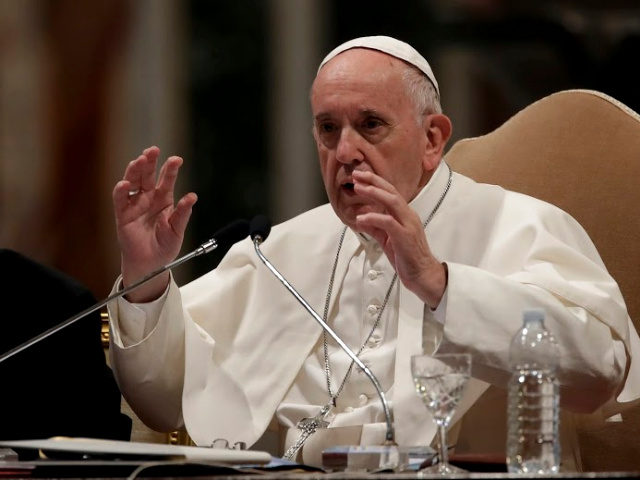Pope Francis has told young economists and entrepreneurs that the world needs a different kind of economy, “one that cares for the environment and does not despoil it.”
In a letter to young business people for an upcoming event titled “Economy of Francesco,” named for Saint Francis of Assisi, the pope declared that “the safeguarding of the environment cannot be divorced from ensuring justice for the poor and finding answers to the structural problems of the global economy.”
“We need to correct models of growth incapable of guaranteeing respect for the environment,” he said.
Saint Francis is a worthy model to follow, the pope said, because he is “the outstanding example of care for the vulnerable and of an integral ecology.”
Jesus told Saint Francis of Assisi to go “repair my house,” the pope recalled. The Lord’s command increasingly “concerns the environment, which urgently demands a sound economy and a sustainable development that can heal its wounds and assure us of a worthy future,” he said.
The pope went on to insist that each person is called “to rethink his or her mental and moral priorities, to bring them into greater conformity with God’s commandments and the demands of the common good.”
This call especially concerns young people, he said, because their desire for a better future makes them a prophetic sign, “pointing towards an economy attentive to the person and to the environment.”
“Please, do not leave it to others to be protagonists of change. You are the ones who hold the future! Through you, the future enters into the world. I ask you also to be protagonists of this transformation… I ask you to build the future, to work for a better world,” he said.
In his letter, released by the Vatican on Saturday, the pope urged young people to “cultivate together the dream of a new humanism” that goes beyond religion to engage all people, whether or not they believe in God.
What the world needs, Francis proposed, is “a common ‘covenant,’ a process of global change. One in which not only believers but all men and women of good will, beyond differences of creed and nationality, can participate, inspired by an ideal of fraternity attentive above all to the poor and excluded.”
Follow Thomas D. Williams on Twitter @tdwilliamsrome

COMMENTS
Please let us know if you're having issues with commenting.